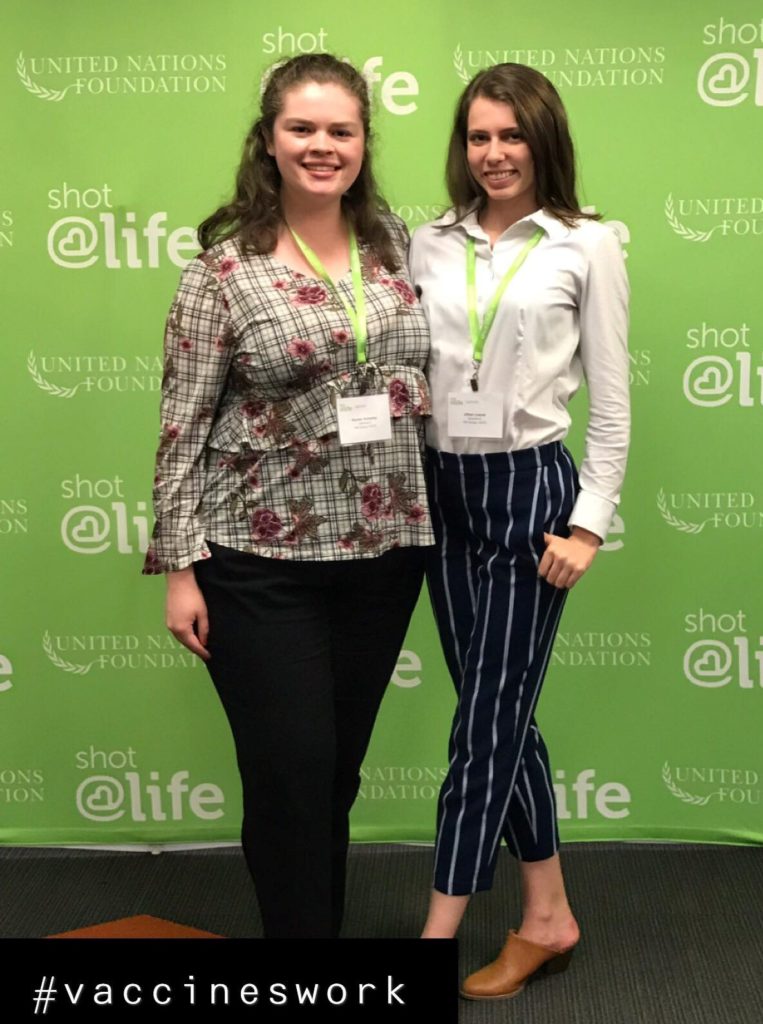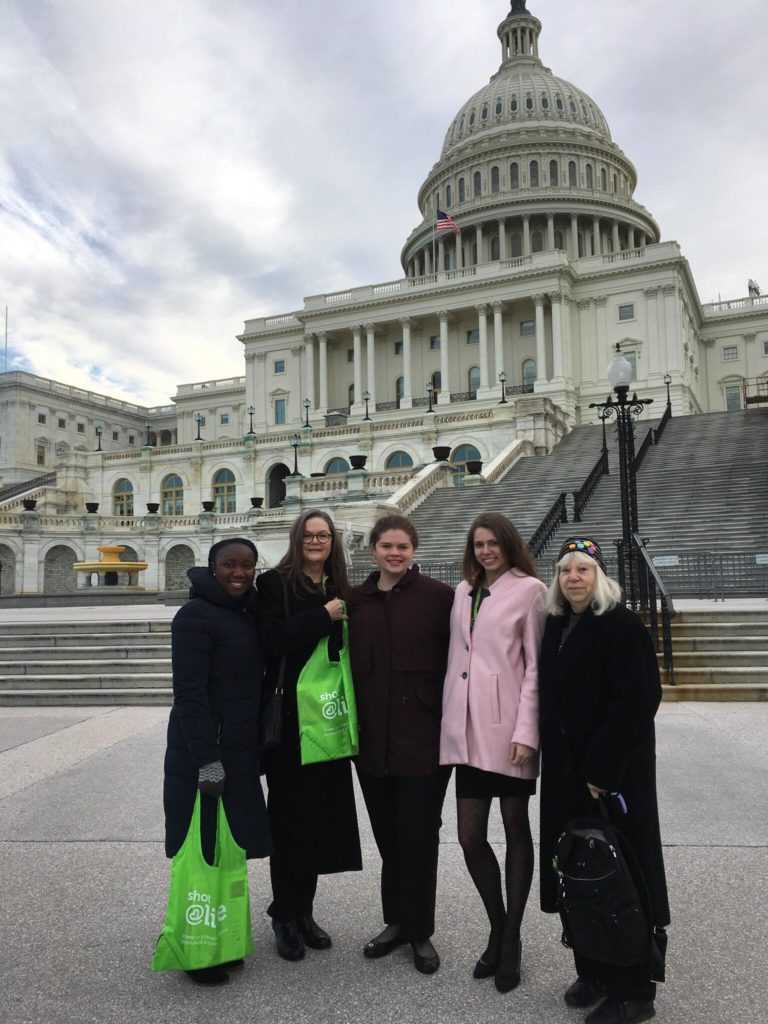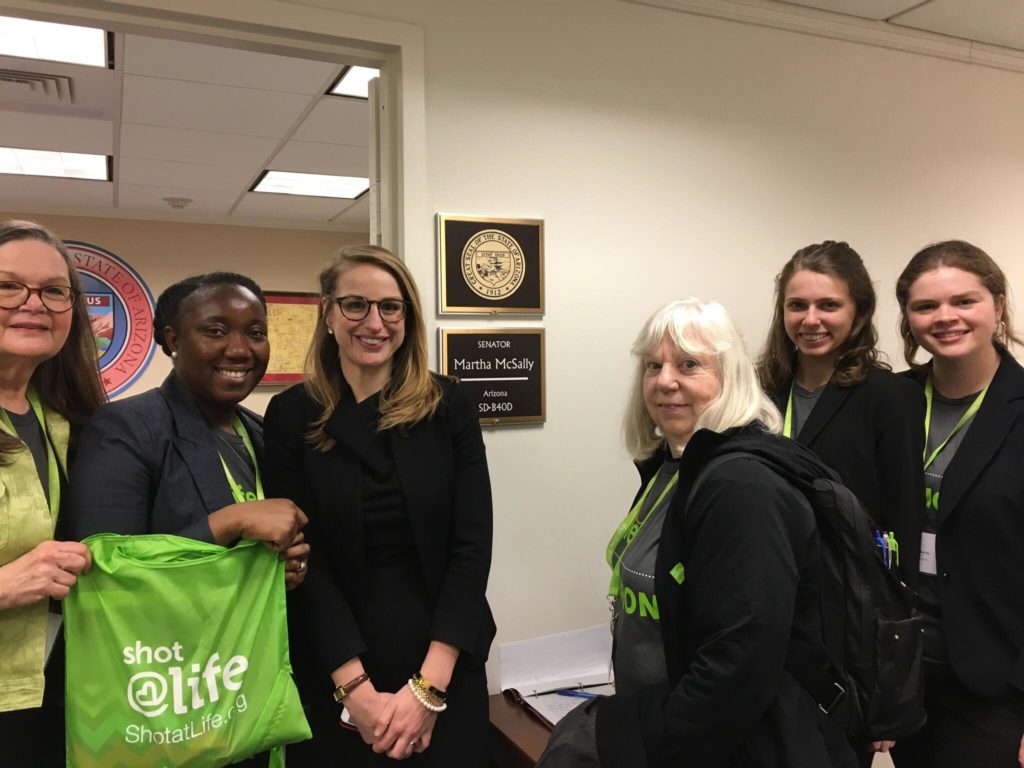

Co-founders Hunter Ackerley and Jill Leaver had the opportunity to attend the 2019 Shot@Life Summit in Washington DC. Day 1 was attending seminars that were lead by members from the United Nations Foundation, Bill & Melinda Gates Foundation, Gavi, UNICEF, and more. These seminars were about how to receive funding for grassroots organizations, emerging technology in the vaccine industry, policies being formed, and how to politically incite global impact through local, national, and international advocacy. Pictured below are CCAP Across The Map’s co-founders Hunter Ackerley and Jill Leaver at the conference.
Day 2 was going to Capitol Hill and meeting with members from the senate and the house of representatives to advocate for global immunization programs. We were specifically advocating for the FY20 global health budget to match the FY19 budget, which was 575 million dollars. After an entire day at Capitol Hill, including 16,000 steps and 6 hours of meetings, we were extremely pleased to receive bipartisan support for our budget request. Our advocacy group was an amazing group of individuals. Pictured below from left to right are Tenneh Turner-Warren from The Arizona Partnership for Immunization (TAPI), Gail Petersen-Hock from the Arizona chapter of the National Cervical Cancer Coalition (NCCC), Hunter Ackerley from CCAP Across The Map, Jill Leaver from CCAP Across The Map, and Dianne Maki-Sethi, who was there from her personal experience of being a measles survivor.


We were extremely fortunate to discuss our advocacy with legislative correspondents for our congressional representatives and to meet with Arizona Senator Kyrsten Sinema herself. Discussing our global health goals with our representatives was an incredibly powerful experience.
Many of the seminars we attended primarily focused on vaccines for measles, polio, rotavirus, and pneumonia. While these are all certainly incredibly important vaccines to fund, we noticed that the HPV vaccine did not receive its much needed attention. We hope to address this disparity in our upcoming projects to continue the global effort to save the cervix.
